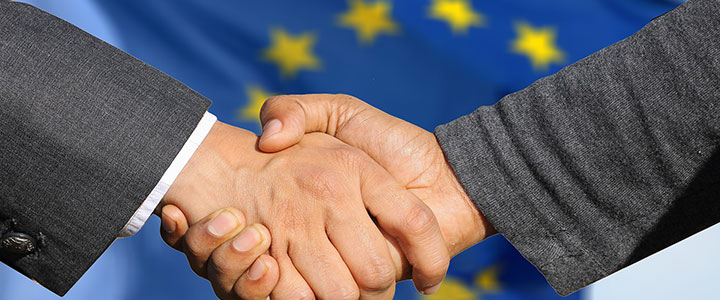
Europe has sealed an historic agreement, reached after five days of negotiations. The 27 have launched a huge financial package to drive the post-COVID economic recovery and have set the budgetary roadmap until 2027 for modernisation of the continental economy. This is historic as it provides a quick response to bounce back after the blow taken from the pandemic, and historic for the huge amount of funds mobilised now and for coming years.
The post-COVID reconstruction fund will have a total of 750 billion Euros, of which 390 billion will be direct grants to the countries, without repayment, for which the European Commission will, for the first time, borrow on the markets to finance. And the multiannual budget plan for the period 2021 to 2027 amounts to a record 1,074 billion euros. This is a definitive commitment to building more Europe.
In each of these programs, the urgent one for recovery and the medium-term budget, Europe is focusing on two key areas for transforming the continental economy: ecological and energy transition and also, crucially, digitalization.
Brussels has imposed obligations on each country in order to receive aid from the post-COVID reconstruction fund. The conditions for each member state are specific, with different reforms required depending on the case. But the common element running through the Union’s requests to all countries is investment and programs that make energy transition possible as well as drive the technological and digital revolution.
And the EU budget until 2027, agreed upon by the 27, points to giving an impetus to the single market, innovation and digitalization (with funding of 132.781 million) as the main axis of spending policies. This is an area in which the development of digital infrastructures is seen as crucial to the Union’s connectivity – along with transport and energy infrastructures – and in which commitment is found to promote a Digital Europe Program to invest in high-performance computing, artificial intelligence and cybersecurity.
Turn objectives into specific policies
For the moment, Europe’s commitments to promote its digital transformation are only objectives, expenditure forecasts, a project to be defined and which must still be translated into concrete measures, into explicit and detailed programs in the coming years; that is, into policies, both nationally and for the EU.
As our manifesto says, Europe’s three sovereignties are at stake in the development of the technological revolution: politics, economics and individuals. Only by getting its policies right will the EU be able to decide for itself without interference, be a producer and not merely a consumer of future technologies, and offer its citizens a framework of rights and freedoms in the digital sphere equivalent to what they enjoy in analogue.
The EU’s ambition to promote its digital transition is evident from the objectives and budgetary commitments set out in the agreement. But whether Europe takes advantage of the immense opportunity to make this transition in line with its values (freedom, equality, solidarity, justice, etc.) and to rely on the technological leadership of its own business fabric – not depending solely on the digital giants of other powers such as the United States or China – will depend on how these commitments are specified, on how they are shaped into specific policies.
Hopefully, the ambition shown by European leaders in this qualitative and quantitative leap will also be shifted to the digital realm, where the EU has a long way to go.




